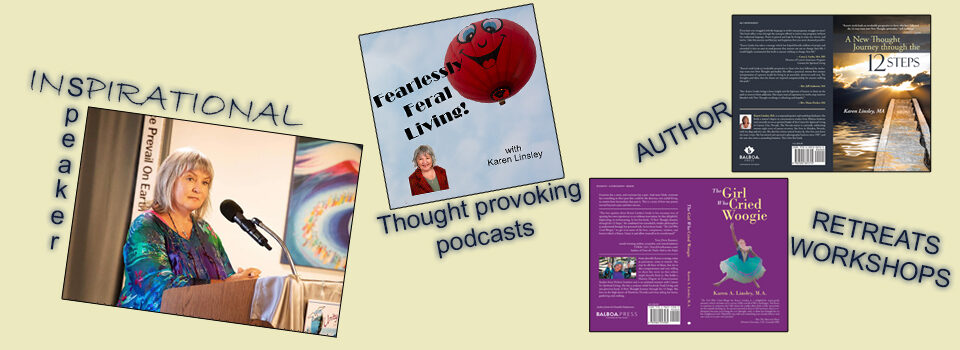 There is a balance between doing and being in our lives. Another way to put that is that in order to be most effective with the stuff we do in our lives, we need to take time out for stillness.
There is a balance between doing and being in our lives. Another way to put that is that in order to be most effective with the stuff we do in our lives, we need to take time out for stillness.
Stillness doesn't have to mean doing nothing. Many of the clients I work with cry out in dismay at the very thought of simply being still. But I believe stillness is a very necessary component to a happy life. When I begin counseling work with a client, one of the first things I do is find out what practices they use to be still. Very often, implementing a practice such as journaling or meditation is all that is needed to restore a life filled with chaos to one filled with peace.
If we look to Mother Nature as an example, we will see that there are periods of calm, and periods of...well, not so calm. We will see trees lying dormant in winter, looking almost dead, yet when spring comes all of a sudden there is a rush of activity on those same trees. If we look to religion as an example, we are told that there is a time to tear down and a time to build. Physically, we must rest every day, for about 8 hours, or risk reduced effectiveness in our doings. Continue with a lack of sleep and eventually psychosis sets in. Psychologically, we need a good, balanced combination of laughter and solemnity, play time and work time, or we risk a feeling of perhaps not fitting in, or feeling like something is missing from our lives.
Most of us, in our active lives, might tend to ignore the need for stillness and quiet. Doing so prevents us from enjoying all the beauty and wonders that life has to offer.
We are approaching a new year. It is a time of resolutions and a determined effort to begin anew for most of us. And yet studies show that resolutions made at this time of year are rarely kept for very long. Instead of making a resolution, make a committment. Commit to spending a period of time, every day, in stillness. Even if you are a mother with children who follow you to the bathroom, you can still find at least a couple of minutes during which you can breathe.....simply breathe.
How do you practice stillness in your life?

